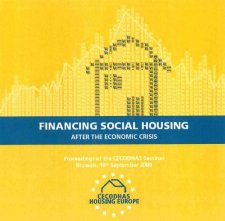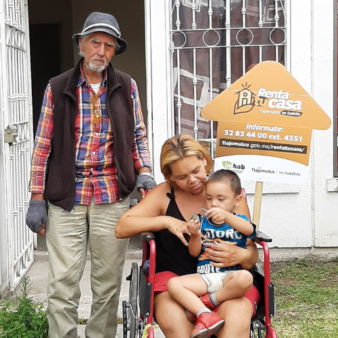
This report takes stock of recent trends and innovative practices in social housing finance, as well as thinking about future possibilities for the financial sustainability of the sector. It provides information on social housing financing in Finland, Austria, France, The Netherlands, Italy and Ireland, as well as some cross cutting themes.
Social housing has experienced an increasing diversification of its finance mechanisms and sources over the last few decades. This includes not only developments in terms of direct and indirect public finance, but also new ways of raising private capital through mechanisms such as bonds via special purpose vehicles, amongst others.
However, the sector has not been immune to the effects of the current financial and economic crisis. Indeed, in a context of wide-spread collapse of financial institutions, large-scale state aid to private banks and high unemployment in many European countries, important questions arise regarding the sustainability of funding for social and affordable housing.
Realizing the need to think openly and creatively about this issue, CECODHAS organised in September 2009 a seminar entitled “Financing social housing after the crisis”, which brought together practitioners and analysts from across Europe. The aim was to take stock of recent trends and innovative practices in this field, as well as to think about future possibilities for the financial sustainability of the sector. This publication brings together the presentations held at the seminar in the form of short articles relating to social housing financing in Finland, Austria, France, The Netherlands, Italy and Ireland, as well as some cross cutting themes.



Join the discussion